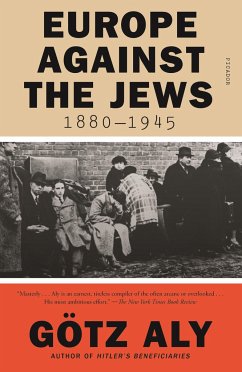
Quotas
The "Jewish Question" and Higher Education in Central Europe, 1880-1945
Herausgeber: Miller, Michael L; Szapor, Judith
Versandkostenfrei!
Versandfertig in über 4 Wochen
147,99 €
inkl. MwSt.
Weitere Ausgaben:

PAYBACK Punkte
74 °P sammeln!
In 1920, the Hungarian parliament introduced a Jewish quota for university admissions, making Hungary the first country in Europe to pass antisemitic legislation following World War I. Quotas explores the ideologies and practices of quota regimes and the ways quotas have been justified, implemented, challenged, and remembered from the late nineteenth century until the middle of the twentieth century. In particular, the volume focuses on Central and Eastern Europe, with chapters covering the origins of quotas, the moral, legal, and political arguments developed by their supporters and opponents...
In 1920, the Hungarian parliament introduced a Jewish quota for university admissions, making Hungary the first country in Europe to pass antisemitic legislation following World War I. Quotas explores the ideologies and practices of quota regimes and the ways quotas have been justified, implemented, challenged, and remembered from the late nineteenth century until the middle of the twentieth century. In particular, the volume focuses on Central and Eastern Europe, with chapters covering the origins of quotas, the moral, legal, and political arguments developed by their supporters and opponents, and the social and personal impact of these attempts to limit access to higher education.













